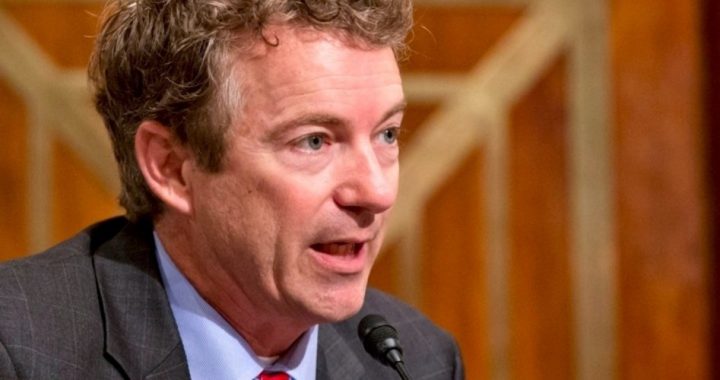
The Grand Old Party has to become a brand new party if it is going to win national elections again, predicted Rand Paul, the senator from Kentucky who is often mentioned as one of the party’s potential nominees for President in 2016.
“I think Republicans will not win again in my lifetime,” Paul, 51, said, “unless they become a new GOP, a new Republican Party. And it has to be a transformation. Not a little tweaking at the edges.” Paul offered that assessment of the party’s future in an interview with conservative talk-show host Glenn Beck. The interview aired February 13, but it continues to draw interest from those interested in the potential presidential candidate whose opinions often clash with conservative Republican orthodoxy. The libertarian Reason magazine published a favorable review of the remarks on its website February 17, noting that the magazine had already judged the son of 12-term Texas congressman and three-time presidential candidate Ron Paul to be “the most interesting man in the Senate.”
“No national politician has done a better job over the past few years of presenting ideas about limiting the size, scope, and spending of the federal government than Paul,” wrote Reason.com editor-in-chief Nick Gillespie. “From his repeated attempts to cut the federal budget by $500 billion in five years to his epic filibuster on drone policy to calling for a new approach to foreign policy to pushing industrial hemp, Paul is a standing challenge not just to the GOP establishment but to the larger Washington establishment. He’s made more than a few missteps so far and he’s far from perfect, but he’s looking sharper and sharper from a limited-government perspective.”
While the first-term senator remains one of the most vocal advocates of budget cutting, he noted that fiscal issues alone won’t bring new voters to a party that has been faring poorly among the young and with minority groups. Republicans need to appeal to younger voters by stressing personal liberty and rights of privacy to keep government from collecting emails and examining their cellphone communications, he said. A frequent critic of federal drug policy, Paul said the GOP needs to take a fresh look at the impact the government’s war on drugs has had on African-American and Hispanic communities. The primary goal, he told Beck, is to present the “ideas of liberty” to everyone.
“There are many people who are open among all these disaffected groups, who really aren’t steadfast supporters of Obama or an ideology,” Paul said. “I think they’re open to listening, but we have to have a better message and a better presentation of it.”
Reason.com included a video clip of interviews Gillespie conducted at predominantly black Howard University in Washington, D.C., after Paul spoke there last April. While Paul won something less than unanimous approval from the audience, several of the students and faculty members interviewed expressed a favorable perception of and openness to the senator’s message. The speech got a mixed review in the Washington Post, where Jennifer Rubin in her “Right Turn” column judged it to be a reflection of “both the best and worst aspects” of Paul’s thinking. Rubin was impressed with his “impassioned plea for school choice” and with his case for reform of federal drug laws and repeal of mandatory minimum sentences. But as one who enthusiastically backed the hawkish, neoconservative rationale for the Iraq War, she was considerably less pleased with Paul’s repudiation of the party’s war hawks.
“Some Republicans, let’s call them the moss-covered variety, mistake war for defense,” Paul told the audience at Howard. “The old guard argues for arms for Gaddafi and then the following year for boots on the ground to defeat Gaddafi. I want you to know that all Republicans do not clamor for war, that many Republicans believe in a strong national defense that serves to preserve the peace.”
“Calling his fellow conservatives war-mongers is no way to earn the respect of his fellow citizens,” came the Rubin rebuke. Paul’s disaffection for the “moss-covered” champions of the “old guard” is nothing new, however, and the old guard has been known to reciprocate. New Jersey Governor and potential presidential candidate Chris Christie last July chided Paul and others for opposing certain aspects of the war on terror, including the targeted killings by drone strikes of American citizens in foreign land associated with al-Qaeda or other terrorist organizations. John McCain, the five-term senator from Arizona and the 2008 Republican nominee for president, referred to Paul and those supporting his filibuster on the drone killings as “wacko birds.”
“There is a struggle going on within the Republican Party,” Paul acknowledged in his interview with Beck. “I tell people it’s not new, and I’m not ashamed of it. I’m proud of the fact that there is a struggle. And I will struggle to make the Republican Party a different party, a bigger party, a more diverse party, and a party that can win national elections again.”
Photo of Sen. Rand Paul: AP Images



